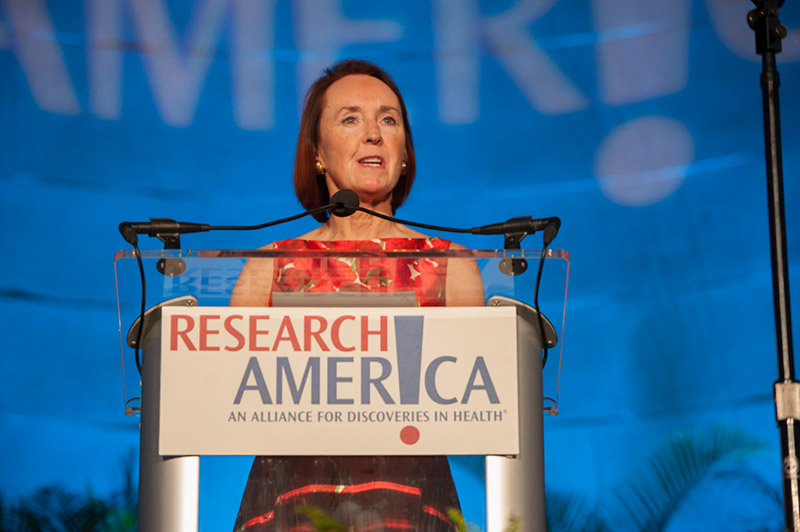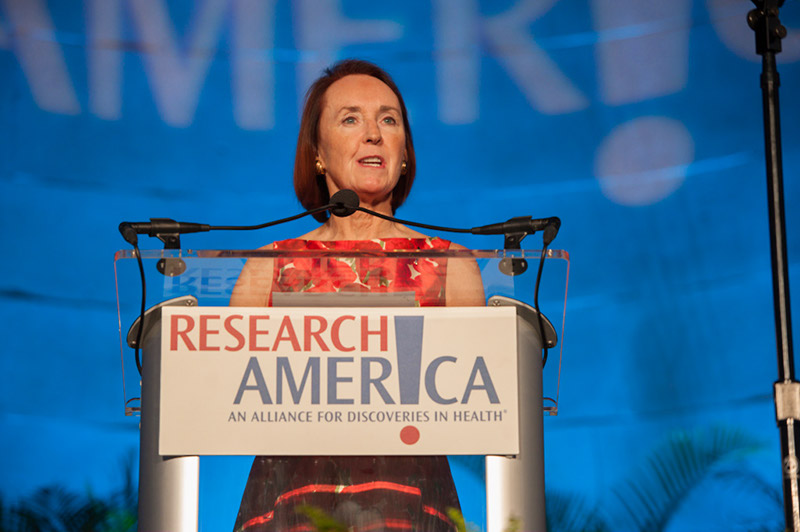Stepping Up the Pace

 Dear Research Advocate:
Dear Research Advocate:
On the FY18 appropriations front, it appears that two issues – Planned Parenthood funding and legislative language designed to stifle fetal tissue research (we have been working with others for several months to prevent this language from advancing) – are delaying final action on FY18 appropriations. Another short-term CR is predicted by some, a government shutdown by others, and there remains the possibility of flat funding through the end of September. The need for advocacy is crystal clear. Please take two minutes and use this email to urge prompt passage of a “clean” FY18 appropriations package.
Also critical, tied up in the slow-walk of appropriations, is a strong response to the opioid epidemic. Adding valuable granularity to evidence-based interventions, AHRQ has refined their hospital data resource to provide – among its many many uses – county-level statistics on opioid-related hospitalizations. Meanwhile, the CDC reports a 30% increase in opioid hospitalization rates in the 14-month period between July 2016 and September 2017.
The hard truth is that the opioid crisis is outrunning current efforts to contain it. House Energy & Commerce Chair, Greg Walden (R-OR), Oversight and Investigations Subcommittee Chair, Gregg Harper (R-MS) and Health Subcommittee Chair, Michael Burgess (R-TX), are holding hearings with the goal of developing bipartisan legislation that can be finalized by the end of May. Investing more in research – from efforts to develop non-addictive pain treatment to exploring the implications of varying hospitalization rates and more – is a critical component.
Data science and IT have advanced at lightning speed since the passage of the Health Information Technology Economic and Clinical Health (HITECH) Act nine years ago – before the iPad was even introduced! There are eye-opening, relevant statistics in an opinion piece by Joel White of Health IT Now and Janet Marchibroda of the Bipartisan Policy Center – I’m still digesting all the points here, but was struck that if emergency room physicians are spending 44% of their time on data entry, we are wasting more time and money than can possibly be justified.
We must be able to collect data and put it to use – in real time, for individual patients, and for research purposes that will benefit us all. We know from our commissioned surveys that the public is ready for this to happen. That’s not to say privacy protections aren’t important; it’s to say patients want a solution that honors the need for privacy and the need for research-driven medical progress. For its part, NIH is seeking input (responses accepted until April 2) on a strategic plan for data science that can help the research ecosystem capitalize on data advances to better serve patients.
The Office of Science and Technology Policy (OSTP) released its report on highlights from the Trump Administration’s first-year. This report will raise some eyebrows in the science community, since the picture it paints does not align well with the president’s budget proposals, or with administrative actions within several science agencies and several other facts on the ground. Yet there is a bright side. The report is glowing – it is clearly intended for an audience that values science and technology, not one that dismisses them. If the president and the administration recognize science and technology as priorities for the American people, there is an opportunity for promoting a solid path forward.
Speaking of bidirectional communication, this thought-provoking essay, co-authored by Elizabeth Good Christopherson, Dietram A. Scheufele, and Brooke Smith, discusses an emerging role for philanthropy in public engagement. The Kavli and Rita Allen Foundations are working with partners to spearhead development of a sustainable path forward for scientists who wish to improve science communication add public outreach to their skill sets. Stay tuned!
In recent Kavli Foundation-sponsored visits with our members at Rutgers University, Texas State University, the Sanford Research Institute of South Dakota, and the University of Chicago, and with the young superstar scientists gathered for my “Lessons in Leadership” remarks organized by the Lasker Foundation, I witnessed a voracious appetite for public engagement. The academic science community may be at a tipping point in valuing public engagement and advocacy – and not a moment too soon given the challenges at hand!
I look forward to seeing you next week at our Annual Meeting of Members and Advocacy Awards Dinner. For those unable to attend in person, we will livestream our Annual Meeting. The Honorable Eddie Bernice Johnson will deliver the keynote address, and a distinguished panel will discuss advances in mental health research and treatment. Please join us!
Sincerely,
Mary Woolley




